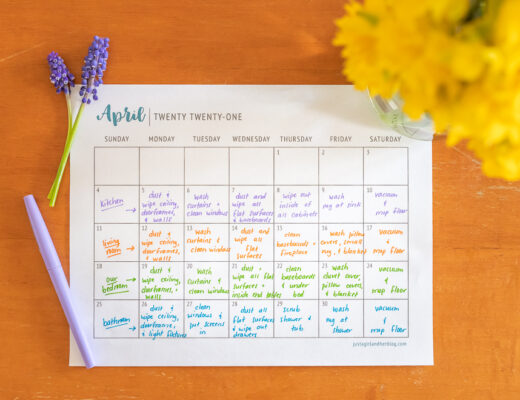Created by Mike & Mollie. Subscribe to our blog.
Stress can be sneaky. It finds its way into our lives in ways we sometimes don’t even notice at first.
Maybe it’s the endless demands at work, or perhaps it’s juggling personal obligations that always seem to pop up just when you think you’ve got things under control. Or it could be that relentless, buzzing feeling that comes from living in a world where we’re always connected, always on. We all know how stress can wear us down, making us feel both physically drained and mentally frazzled. But here’s the good news: you don’t have to let stress rule your life.
There are some tried-and-true methods that really do help in kicking stress to the curb. Let’s dive into what can truly make a difference.
Sleep—Your Secret Weapon Against Stress
Let’s start with something simple, yet often overlooked: sleep. It’s not just a time-out from your busy day; it’s the foundation of your well-being. Without enough rest, your body stays on high alert, like an overworked guard dog that never gets a break. And when you’re exhausted, everything feels harder, doesn’t it? Aim for those golden 7 to 9 hours of sleep. To make that happen, try creating a bedtime ritual that helps you unwind. Maybe it’s reading a good book, sipping some herbal tea, or simply dimming the lights. Think of sleep as the ultimate recharge—a bit like plugging in your phone overnight. Just as your phone needs a full battery to function, so do you.
Mindfulness and Meditation—Your Daily Dose of Calm
Mindfulness isn’t about silencing your thoughts; it’s about noticing them without letting them run the show. And meditation? Well, it’s like training your mind to stay present, no matter what’s going on around you. If you’re new to it, start small. Find a quiet spot, sit comfortably, and focus on your breathing. Sure, your mind will wander—everyone’s does—but gently bring it back to your breath each time. Before you know it, you’ll start to feel a bit more grounded, a little less shaken by the chaos around you. It’s almost like building a shield, one that helps you stay calm even when life gets hectic.
Physical Activity—Move Your Body, Ease Your Mind
We’ve all heard that exercise is a great stress buster, and there’s a reason for that. When you move, your body releases endorphins—those feel-good chemicals that can turn a bad day around. But don’t worry, you don’t have to become a marathon runner to get the benefits. Even a 20-minute walk can work wonders. The key is finding something you enjoy. Maybe it’s dancing around your living room, taking a yoga class, or going for a bike ride. When you make physical activity a regular part of your life, you’ll start to notice that stress has a little less power over you.
Connection—Lean on Your People
We’re social creatures at heart, and sometimes the best way to manage stress is to reach out to others. It’s amazing what a quick chat with a friend or a coffee date with someone you trust can do. When you’re feeling overwhelmed, don’t keep it all inside. Share your worries, talk things through, and let someone else’s perspective lighten your load. You’ll probably find that you’re not alone in what you’re feeling, and that connection can make all the difference.
Boundaries—Protect Your Peace
In a world where it feels like we’re expected to be available 24/7, setting boundaries can be a game-changer. It’s easy to get caught up in saying yes to everything—another project at work, another social event, another favor for a friend. But here’s the thing: it’s okay to say no sometimes. In fact, it’s necessary. By setting boundaries, you’re not being selfish; you’re taking care of yourself. And when you protect your time and energy, you’re better equipped to handle the things that truly matter, without feeling stretched too thin.
Gratitude—Focusing on the Good
Gratitude might sound like one of those fluffy concepts, but it’s actually a powerful tool for shifting your mindset. When you make a habit of noticing what you’re thankful for, you start to see your world in a different light. It doesn’t have to be big things—sometimes it’s the little moments, like enjoying a quiet morning coffee or getting an unexpected text from a friend. Try jotting down three things you’re grateful for each day. You might be surprised at how this simple practice can make you feel more positive, and in turn, less stressed.
Hobbies—Rediscovering Joy
When was the last time you did something just for the fun of it? Hobbies can be a wonderful way to escape from stress and reconnect with what makes you happy. Whether it’s painting, gardening, playing an instrument, or even binge-watching your favorite show, these activities are more than just pastimes. They’re moments where you can lose yourself and forget about the stresses of the day. So, give yourself permission to dive into what you love. It’s not a waste of time—it’s a way to recharge your spirit.
Simplify—Less Clutter, More Calm
Have you ever noticed how a cluttered space can make your mind feel cluttered too? Taking some time to declutter your environment can have a surprisingly calming effect. Start with something small, like tidying up your desk or organizing a single drawer. You might find that as you clear away the physical clutter, your mind feels a little lighter too. And when your space is clear, it’s easier to focus on what’s important without being overwhelmed by the mess.
Nourishment—Feed Your Body, Feed Your Mind
What you eat can play a big role in how you feel. If your diet is full of processed foods, sugar, and caffeine, it might be adding to your stress without you even realizing it. On the flip side, a diet rich in whole foods—think fruits, veggies, whole grains, and lean proteins—can help stabilize your mood and give you the energy to tackle whatever comes your way. Eating mindfully, really savoring your food, can turn a meal into a moment of calm. Pay attention to how different foods make you feel, and try to choose what nourishes both your body and your mind.
Professional Help—You Don’t Have to Go It Alone
Sometimes, despite our best efforts, stress can feel overwhelming. If that’s the case, don’t hesitate to reach out for professional help. Whether it’s talking to a therapist, counselor, or coach, getting support can make a huge difference. They can offer you tools and strategies tailored to your unique situation, and sometimes just having someone listen can be incredibly freeing. Remember, asking for help isn’t a sign of weakness—it’s a step toward taking control of your well-being.
Stress is a part of life, but it doesn’t have to take over. The journey to a less stressful life is personal, and what works for someone else might not be the perfect fit for you. The key is to try out different strategies and find what resonates with you. Whether it’s getting enough sleep, practicing mindfulness, moving your body, or simply making time for the things you love, each small step can add up to a big change. Life is too short to be consumed by stress—start taking steps today to give yourself the peace and balance you deserve.




